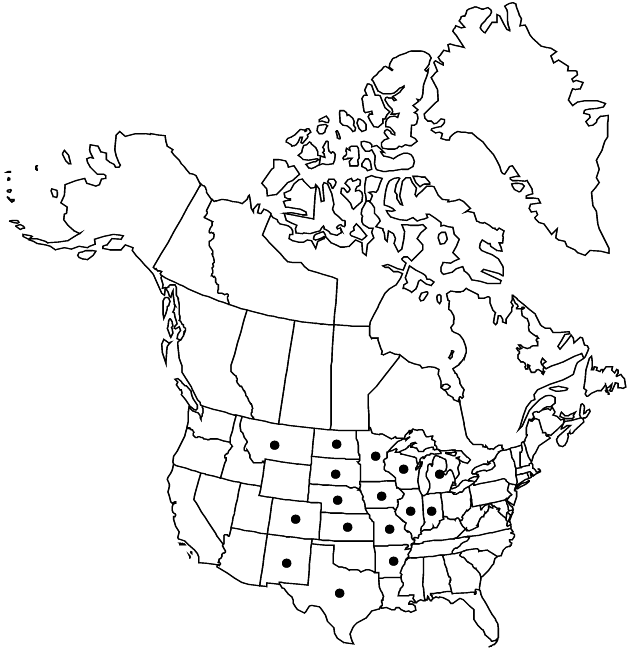Difference between revisions of "Brickellia eupatorioides var. corymbulosa"
Sida 4: 274. 1971.
Endemic
Basionym: Kuhnia eupatorioides var. corymbulosa Torrey & A. Gray Fl. N. Amer. 2: 78. 1841
FNA>Volume Importer |
imported>Volume Importer |
||
| (6 intermediate revisions by 2 users not shown) | |||
| Line 7: | Line 7: | ||
|year=1971 | |year=1971 | ||
}} | }} | ||
| − | |basionyms={{Treatment/ID/ | + | |special_status={{Treatment/ID/Special_status |
| + | |code=E | ||
| + | |label=Endemic | ||
| + | }} | ||
| + | |basionyms={{Treatment/ID/Basionym | ||
|name=Kuhnia eupatorioides var. corymbulosa | |name=Kuhnia eupatorioides var. corymbulosa | ||
|authority=Torrey & A. Gray | |authority=Torrey & A. Gray | ||
| + | |rank=variety | ||
| + | |publication_title=Fl. N. Amer. | ||
| + | |publication_place=2: 78. 1841 | ||
}} | }} | ||
|synonyms= | |synonyms= | ||
| Line 34: | Line 41: | ||
-->{{#Taxon: | -->{{#Taxon: | ||
name=Brickellia eupatorioides var. corymbulosa | name=Brickellia eupatorioides var. corymbulosa | ||
| − | |||
|authority=(Torrey & A. Gray) Shinners | |authority=(Torrey & A. Gray) Shinners | ||
|rank=variety | |rank=variety | ||
| Line 48: | Line 54: | ||
|publication title=Sida | |publication title=Sida | ||
|publication year=1971 | |publication year=1971 | ||
| − | |special status= | + | |special status=Endemic |
| − | |source xml=https:// | + | |source xml=https://bitbucket.org/aafc-mbb/fna-data-curation/src/2e0870ddd59836b60bcf96646a41e87ea5a5943a/coarse_grained_fna_xml/V19-20-21/V21_1258.xml |
|tribe=Asteraceae tribe Eupatorieae | |tribe=Asteraceae tribe Eupatorieae | ||
|genus=Brickellia | |genus=Brickellia | ||
Latest revision as of 20:09, 5 November 2020
Plants 30–200 cm. Leaves opposite; petioles 0–10 mm; blades 1- or 3-nerved from bases, lanceolate to lance-linear, 5–90 × 2–15 mm, margins entire or coarsely dentate. Heads in paniculiform or corymbiform arrays. Peduncles 5–25 mm. Involucres 8–15 mm. Phyllaries green to stramineous, sometimes purple-tinged (lengths of outer to 1/2 inner, apices acute to acuminate, not contorted). Florets 15–35; corollas pale yellow to pinkish lavender, 4.7–8 mm. Cypselae 2.7–5 mm. 2n = 18.
Phenology: Flowering May–Oct.
Habitat: Open areas, wide range of soils
Elevation: 200–2300 m
Distribution

Ark., Colo., Ill., Ind., Iowa, Kans., Mich., Minn., Mo., Mont., Nebr., N.Mex., N.Dak., S.Dak., Tex., Wis.
Discussion
Selected References
None.
Lower Taxa
None.